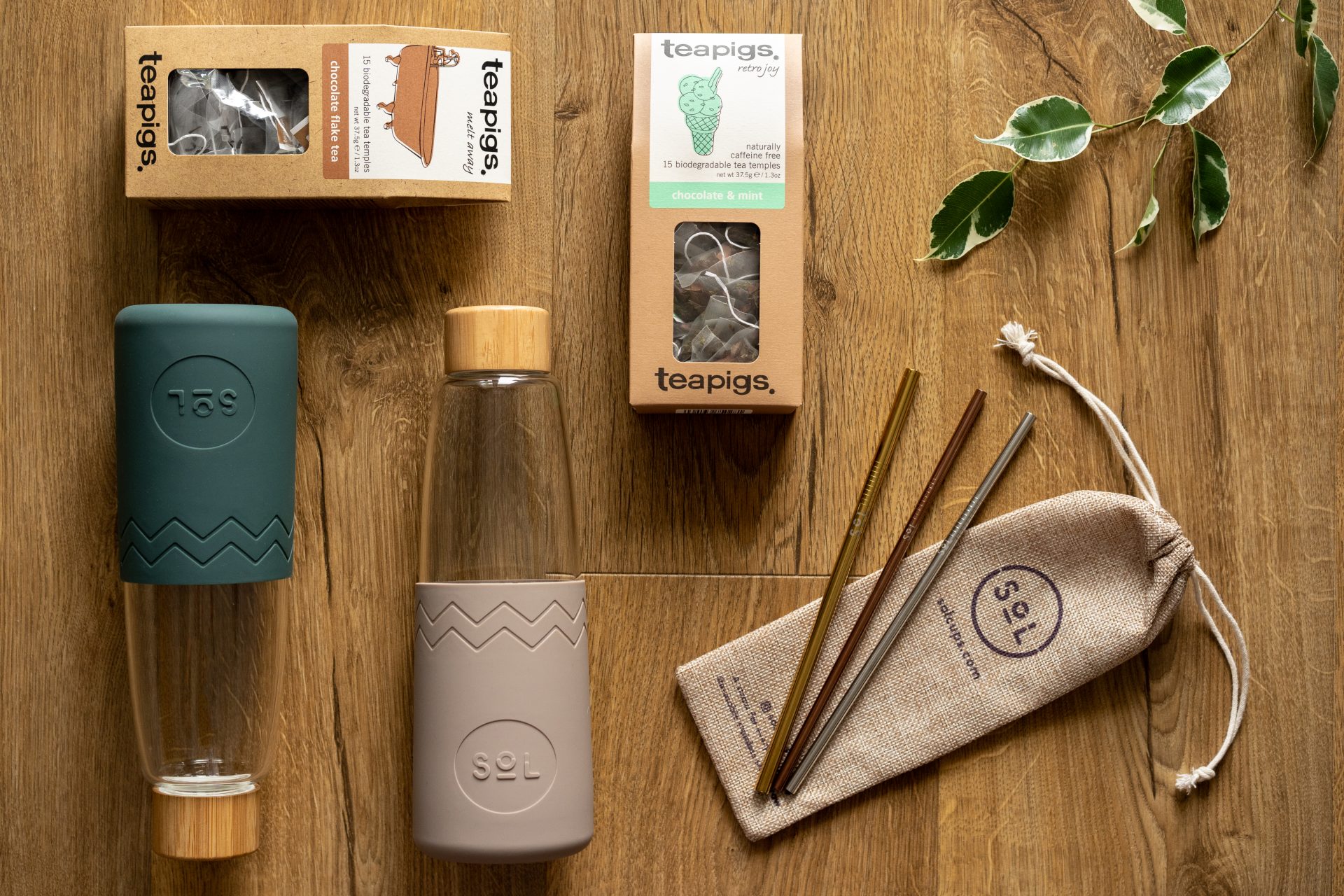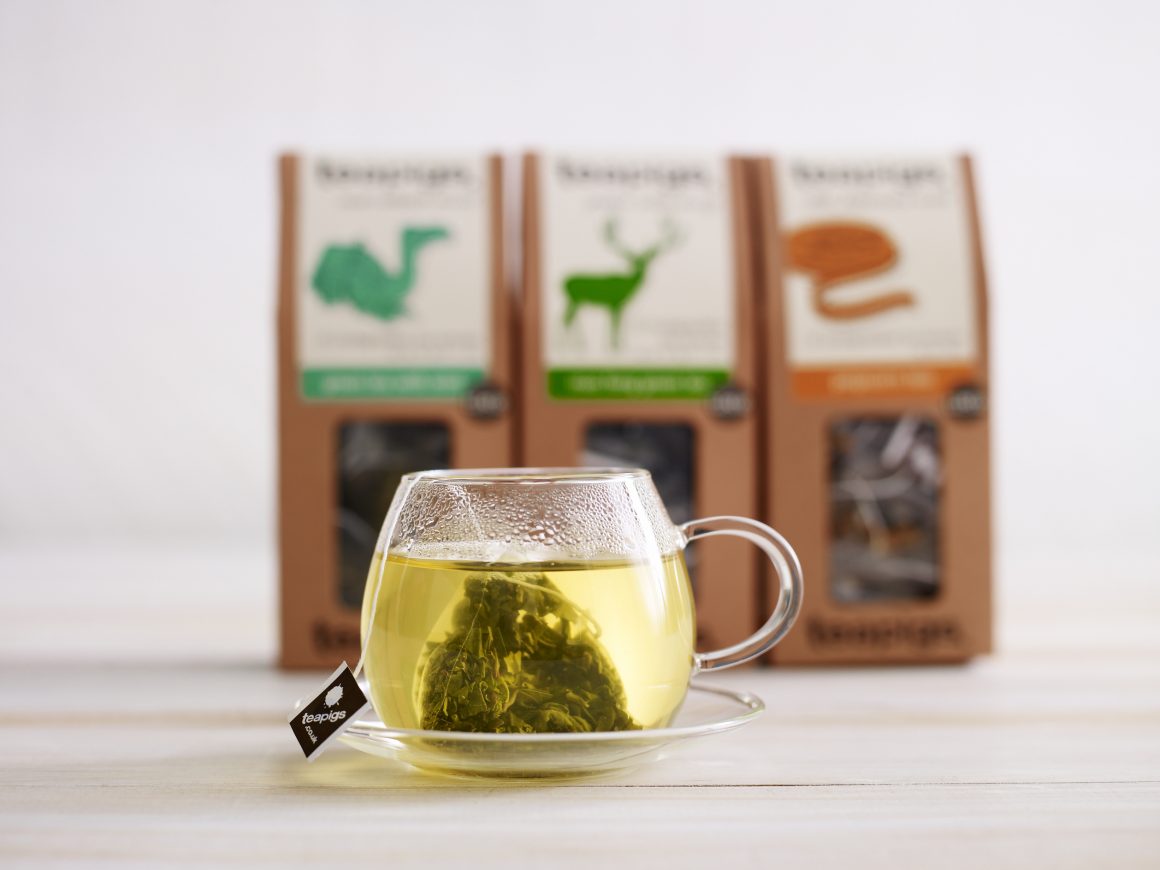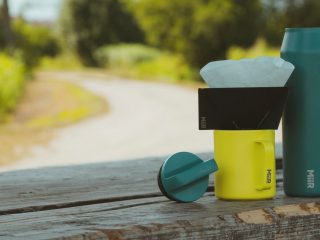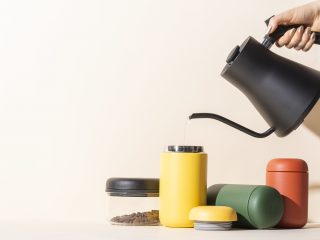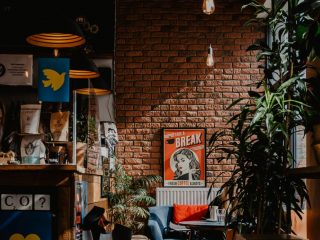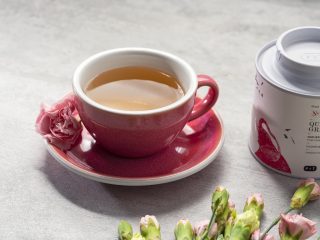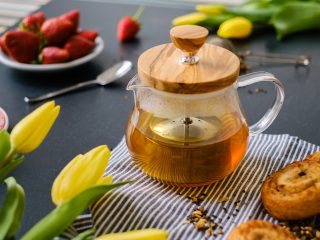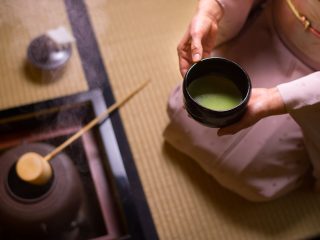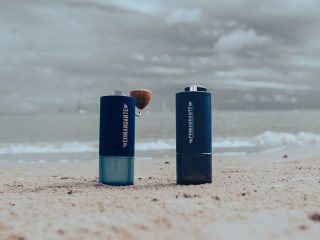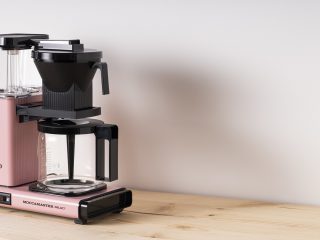Protecting the environment is a challenge. Looking at millions of tons of plastic we feed to our sees and oceans every year, you can easily get discouraged and start having doubts; however, indifference is not a solution. Each little step towards protection of the environment prolongs the life of our planet. So if you are a coffee lover with a passion for sustainability or if you feel that it is high time you changed your habits – take a look at our ECO-FRIENDLY accessories that will bring you closer to living less waste.
SOL – straws and ecology
Straws are more popular in summer. Most of us can’t even imagine drinking cold brew or iced tea straight from the cup! However, we need to remember about environment all year long.
Biodegradable straws – made from paper, straw, noodles and other easily degradable materials – are an eco-friendly answer to plastic straws. Reusable straws – bamboo, glass and metal ones – which can be washed and reused are becoming more and more popular as well. Metal straws are very robust, handy, and they look cool with any type of drink, because they usually come in classy golden, silver or copper shades.
Choosing eco-friendly straws is the first simply way to reduce, even if only slightly,the production of plastic worldwide. Supply gets lower with falling demand, so all hope is in our good choices.
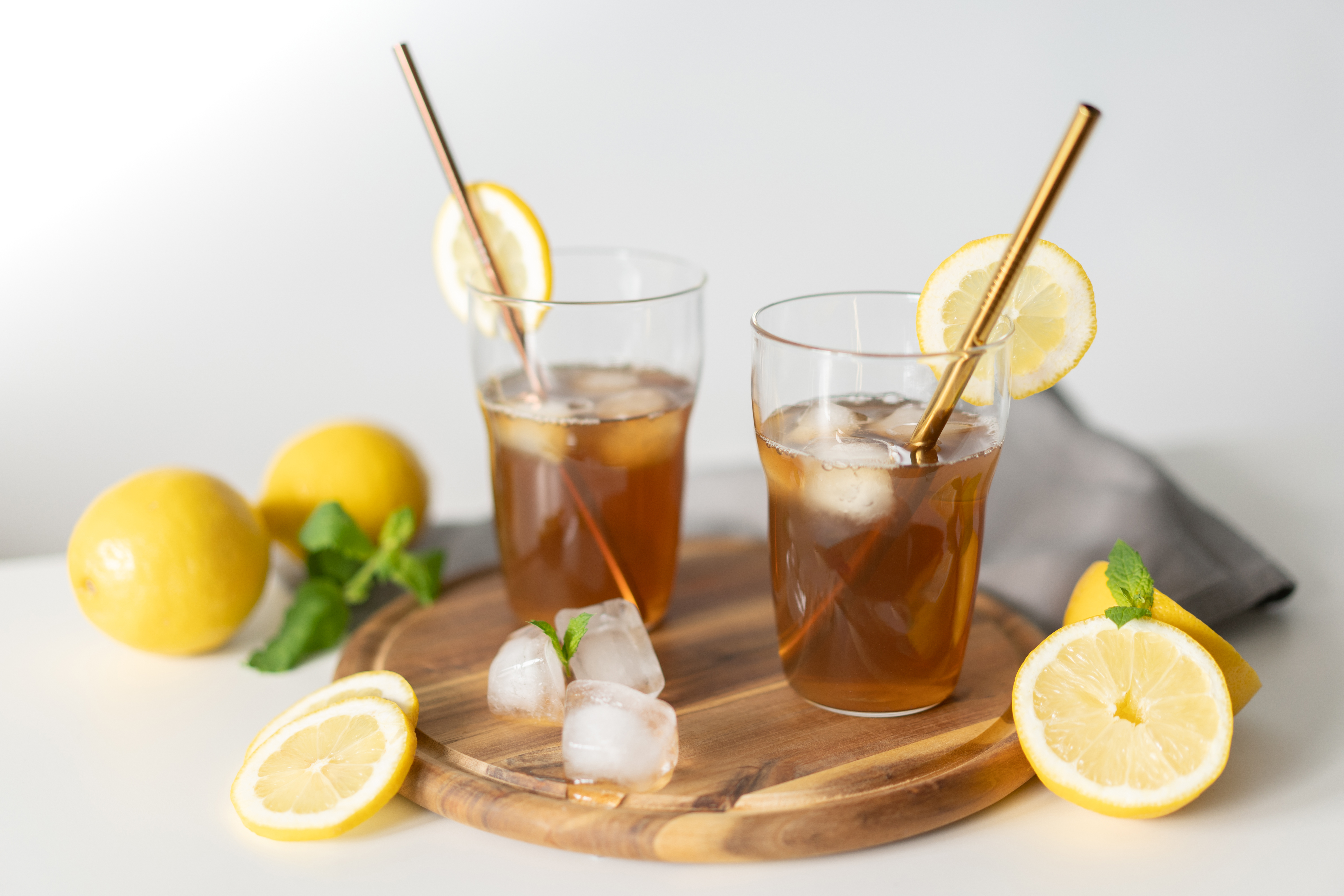
Reusable cups and bottles: SOL, EcoVessel, KeepCup
Reusable cups are a conscious choice of people who drink coffee and care for the environment. The action ‘Bring Your Own Mug’ (in which Coffeedesk coffee shops take part!) is now popular in almost every city in Poland and Europe. Each time you bring our mug to a coffee shop which takes part in this action, it is not only the environment that reaps the benefits, but your finances too. When you order a take-away coffee in your own mug, you get a symbolic discount.
Many manufacturers on the mission to protect the planet decide to produce reusable cups, which is why there is such a wide choice and variety of mugs or bottles – they come in literally every conceivable size, colour or pattern.
Moreover, most of the products available on the market are eco-friendly in themselves – they have been made from biodegradable materials. SOL bottles made from hand-blown glass, bamboo (!) cap and silicon BPA-free band area good example.
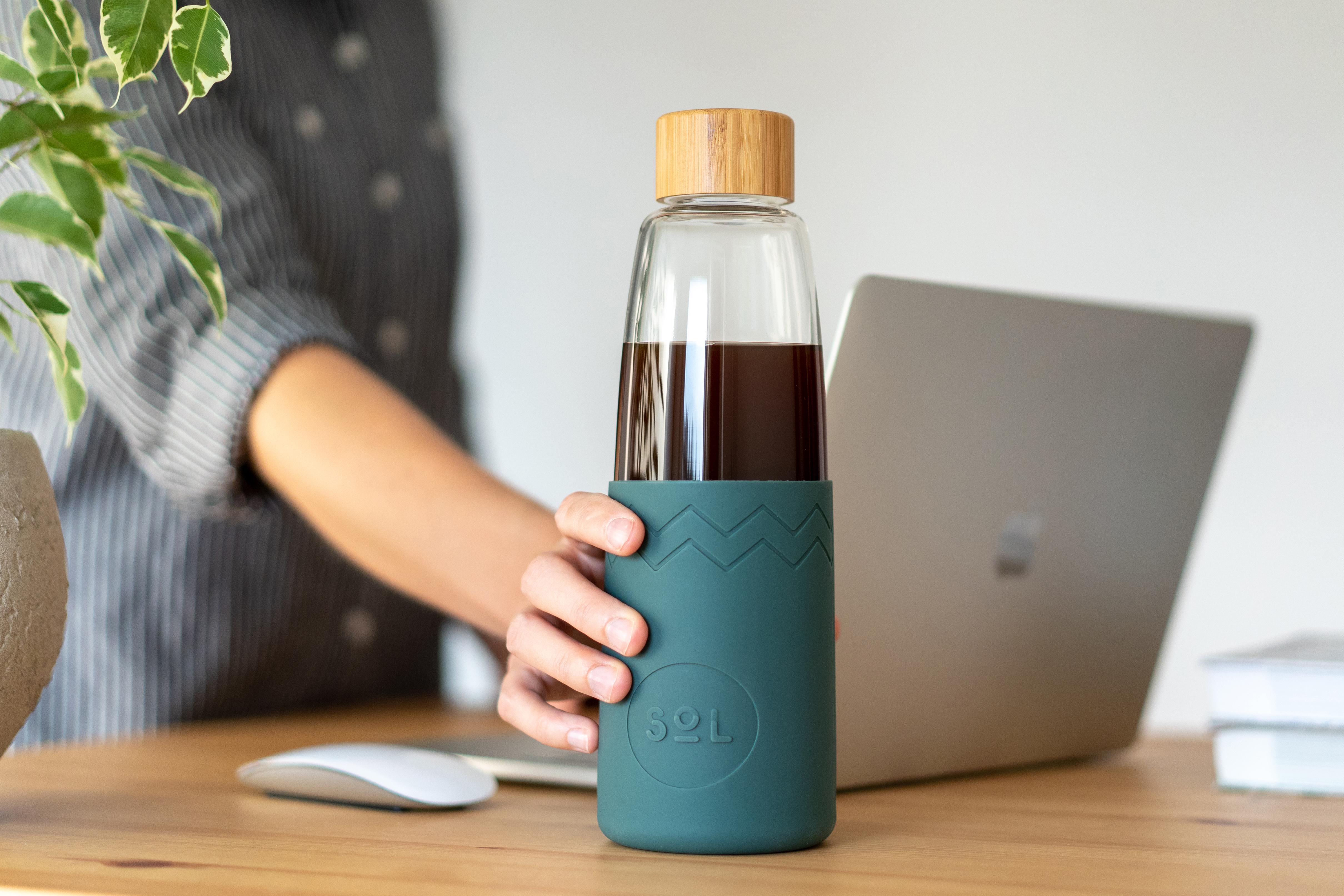
What is BPA?
BPA or Bisphenol A is an organic compound belonging to the group of phenols. It is very often used to manufacture products made of plastic, mainly polycarbonate. So what should you avoid? Bisphenol is mostly present in the inner layer of metal cans for storing food or plastic bottles and containers.
Important facts:
– in 2011, European Union imposed a ban on the use of BPA in bottles intended for infants and young children
– in mid-January 2018, ECHA updated the list of substances which may have serious effects on human health and the environment, adding BPA. This move was based on studies which have confirmed that bisphenol not only affects the reproductive system, but it also disrupts hormonal balance.
– BPA in plastic packaging can leak into the food, especially if it’s been heated or is acid.
Source: www.ekonsument.pl/a67103_bisfenol_a_wrog_ukryty_w_butelce.html
KeepCups, on the other hand, are made from glass and a resistant, non-toxic plastic. Interestingly, for creating one plastic KeepCup you need as much material as for producing only 20 single-use cups. Every minute, around a million single-use cups end up in landfill worldwide. Unlike the KeepCup, many of them cannot be recycled!
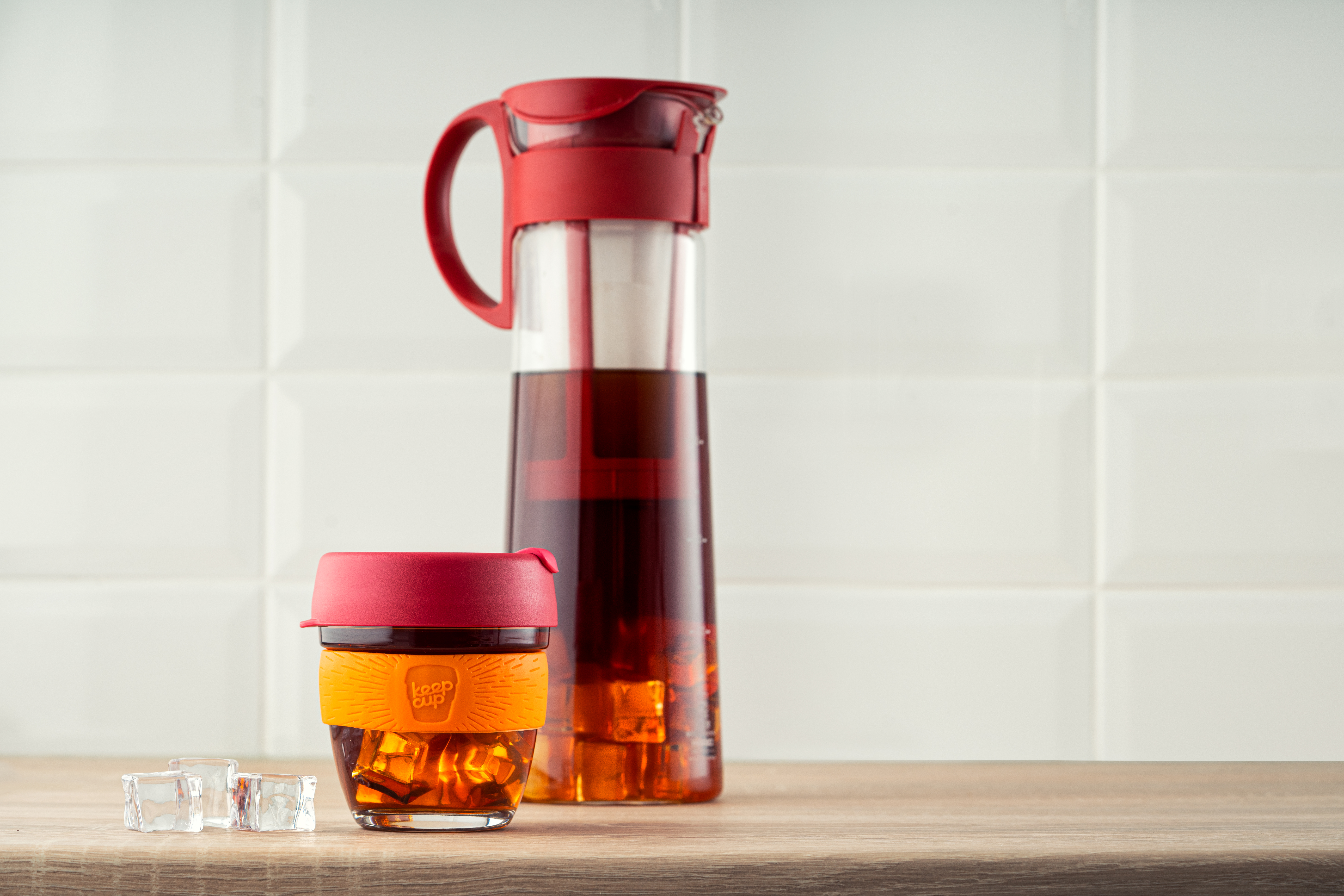
EcoVessel produces metal thermal mugs which should make us give up single-use packaging. They will be perfect for people with an active lifestyle, as they are robust, retain heat for up to 20 hours and have a 100-year warranty. All EcoVessel products can be recycled and are BPA-free.
Teapigs – plastic-free packaging
If you are a tea enthusiast, Teapigs will be the right eco-choice for you. Virtually every element of Teapigs tea packaging is biodegradable and eco-friendly.
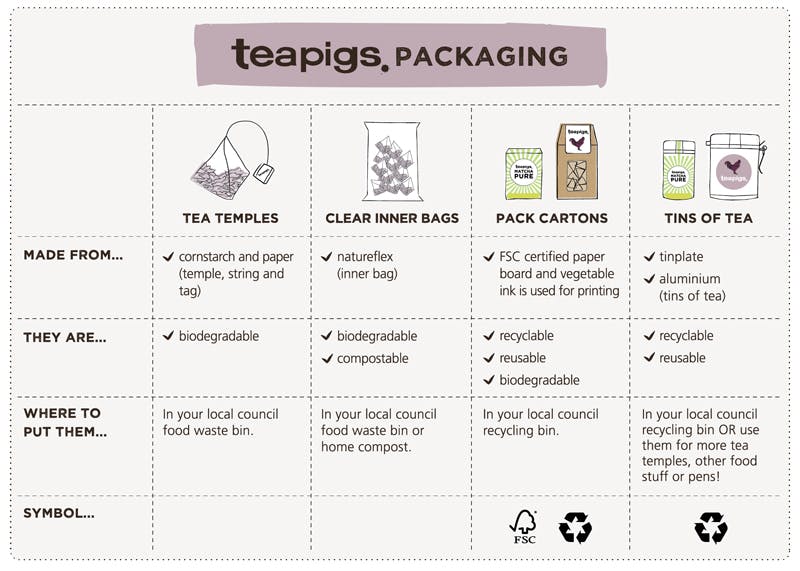
How does it look in detail? Teapigs pyramids are made from processed corn starch and their string and tag are heat-sealed (no glue)! The tag is made of paper, and the ink used to print on the packaging is vegetable-based. The cardboard packaging is FSC-certified.
FSC – Forest Stewardship Council – is an international non-profit organisation which certifies wood and paper. It sets standards for responsible forestry. Certified companies use only raw materials coming from responsible sources, which helps both manufacturers and consumers take ethical and responsible decisions.
And what about the film inside the carton? This is Natureflex (cellophane), a transparent alternative to plastic made of biodegradable cellulose.
Do check out our article on compostable tea bags! -> CLICK
What about coffee?
Don’t forget about coffee! Good less waste practices when it comes to coffee are, i.a., reuse of used coffee grounds (in the form of a peeling or flower fertiliser). Moreover, when you buy speciality coffee, you have certainty that it comes from a reliable source, so your choice will be much more socially responsible than the purchase of coffee manufactured commercially in big industrial plants. Often farms where coffee plants producing speciality coffee are grown are much more eco-friendly and resemble a dense forest. Farmers are aware of the fact that biodiversity of the whole ecosystem helps them grow the best possible fruit.

